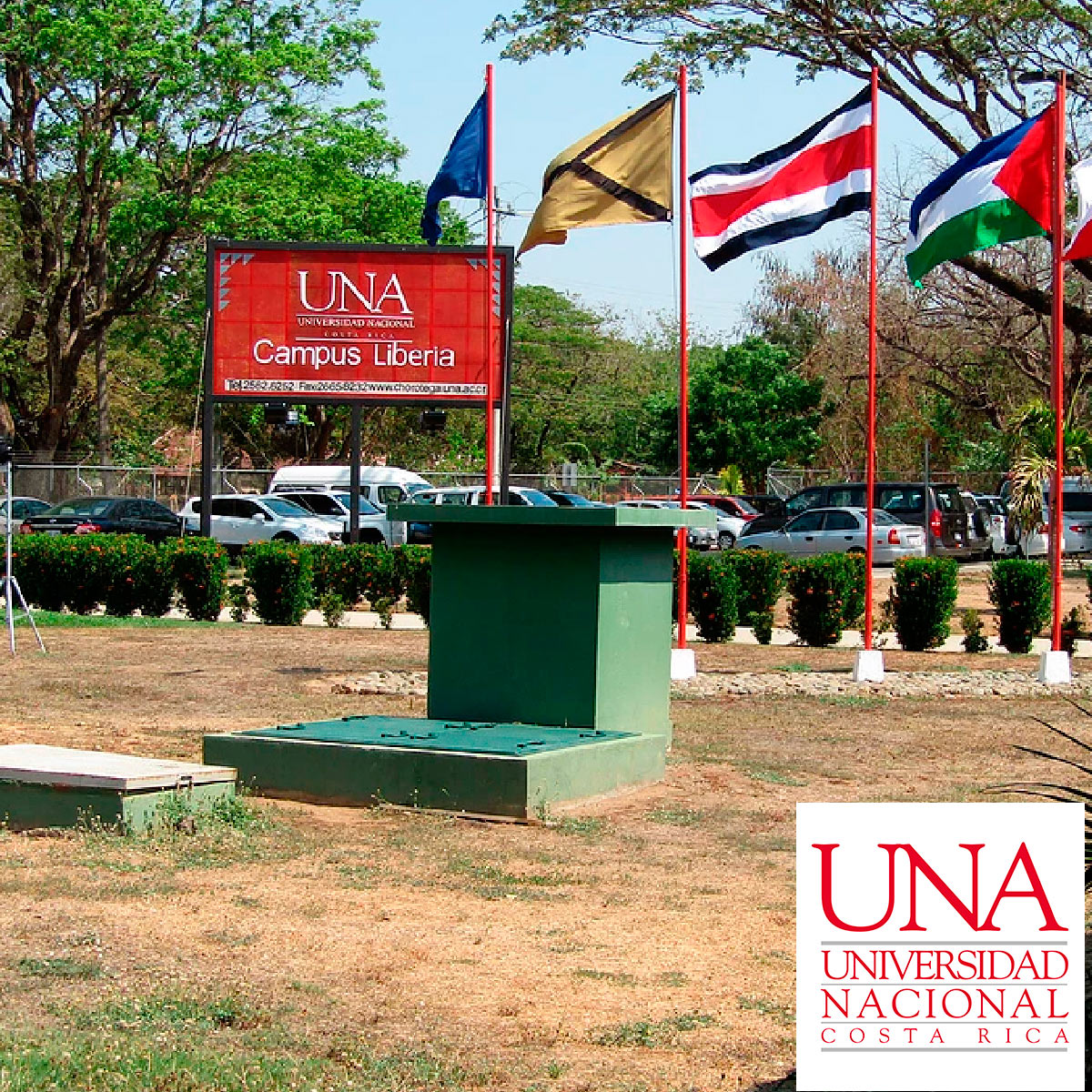
The Universidad Nacional of Costa Rica (UNA), is a public education center, founded in 1973.
It has 8 campuses around the country with an equal number of faculties, 32 schools and 13 institutes.
Its academic offer is made of 197 academic options with 134 undergraduate curriculums, 58 master programs with 85 specializations and 58 PhDs with 9 specializations; besides 114 laboratories, from which 33 are found in the Faculty of Earth and Sea Sciences where the School of Agrarian Sciences is located (ECA) and within it, the multidisciplinary academic program “Support Center for Development of Designations of Origin and Quality Seals of Agrifood Products” (CadenAgro) seat for the SUS-TER project.
For the year 2017, the students population of the UNA was of 19700, with 526 new students joining for the year 2018, from which 65% are women and 35% are men; with 89% of all the new students coming from rural areas and 11% coming from urban areas.
On the extension subject, a model of territorial focus is held for the treatment of 27 priority subjects.
On international agreements, UNA has achieved a total of 109, from which 60,6% are with Latin American countries.
On scholarships and student benefits, $3,3 millions are estimated to benefit 6 thousand students and $287 thousand for 1 thousand students in extreme poverty conditions.
CadenAGRO on the other hand, is a program conformed by 11 professionals with grades from bachelor to PhD, dedicated to the elaboration of technical studies of handcrafted agrifood products and semi industrialized, for its formalization and register in official Costa Rican instances, through services like: technical studies, geotagging and delimitation, making of regulatory documentation, assessment and capacitation on local structure arrangement and deep technical evaluation.
For another, ECA frames its actions within permanent and participative study of agrarian reality, formation and capacitation of human resources and knowledge generation and appropriated technologies, for the improvement of socio productive processes with aim on small and medium producers.
In teaching we present grade and postgraduate specialties on alternative agriculture, agro-industrial management, apiarian production, seeds production and vending, and management of regional and local development. Likewise the grade in Teaching of Agricultural sciences.
Academicians, supported by administrative staff and the participation of students, project their performance in fields as varied as: bovine, poultry and goat production, experiments with pasture and forage plants for animal feeding, apiarian production, plant breeding and tissue cultivation, plant genetic resources, phytopathology and molecular techniques application, fruit production, pests and illnesses control techniques, horticultural production and basic grains, suitable soil management and organic fertilization, atomic energy application through Nitrogen 15 technique, the usage of low input techniques such as vermiculture and hydroponics, classification and diagnostic of nematodes and so on.
In the socio economic field, besides the support given to ease the usage of some of the previously mentioned fields, there is the intervention of the Rural Development Master Degree and the usage of methodologies for participative techniques and diagnostics.
In general terms, among the research subjects of ECA/CadenAGRO attached to SUS-TER, the followings are cited:
- Appraisal (territorial and national) of traditional and original products from the territory (DOP, IGP, collective brands).
- Rural Tourism as a tool for promotion of products attached to the territory.
- Rural and community sustainable development, in several dimensions (Master degrees).
- Plant genetic resources, seeds preservation, varieties and other traditional products.
- Agrarium, economic and environmental history. Biocultural and ethnic studies, identities.
UNA in its order of ECA and CadenAGRO, is the national coordinator of Costa Rica, being responsible for the Work Package 5 (WP5), aiming to develop a pilot test phase for the SUS-TER curriculum, to approve its structure and content.
The complete SUS-TER course will be taught 2 times on an international level, and UNA will guarantee the virtual platform in both cases, having in mind the more than 15 years of experience in virtual education in the Master degree, consolidating a modern virtual education platform.
Specifically, in WP5, UNA will coordinate the following tasks:
- Production of guidelines WP5.
- Participants recruitment.
- SUS-TER course tests delivery.
- Evaluation of SUS-TER course tests delivery and defining learning contents that will be checked.
Likewise, UNA will be an assistant for the WP4, taking part in the production of materials and media for teaching and capacitation; and for the WP7, committing with the recognition and accreditation of the curriculum; for all of these actions, it will keep permanently coordinating with the Universidad de Costa Rica (UCR) and the Rural Development Institute (INDER) in Costa Rica.